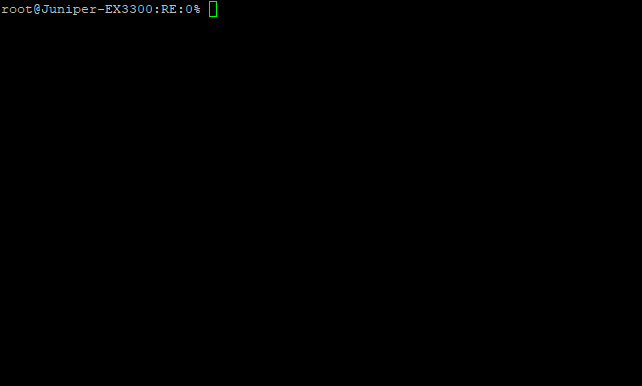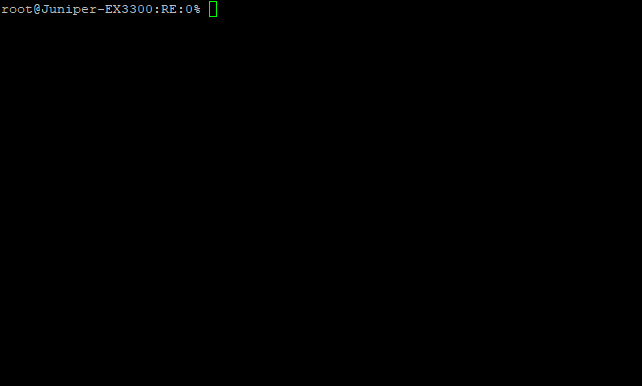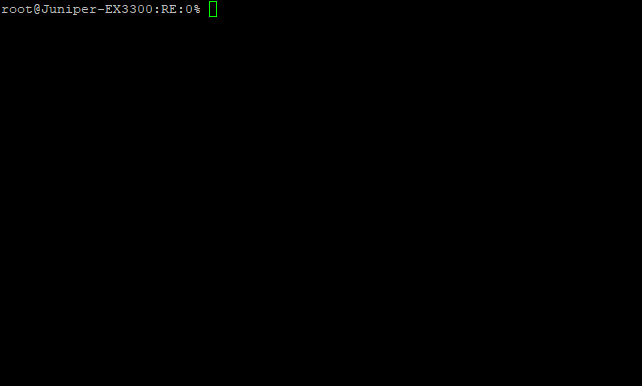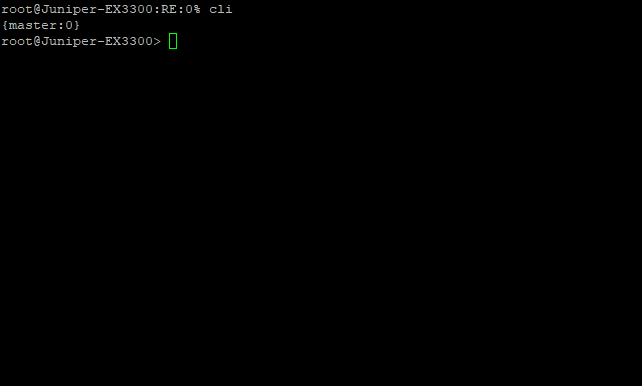Bundeling multiple physical connections to maximize troughput and get redundency is called Link Aggregation.
_!WARNING, Terminology-fu! _ Networking equipment manufacturers do not use the same technical terms. For example HP calls aggregating interfaces “Trunking” and aggregated interfaces a “Trunk”. “Trunking” is a term used by Cisco and Juniper in V-Lan (802.1q) to describe interfaces that are allowed to forward V-Lan traffic. Such an interface is referred to as a “Trunk Port”, while HP calles this a “Tagged Interface”. If you are in a homogenic network eqipment envoirement that is passing V-Lan tagged traffic over aggregated interfaces you really have to watch your lingo! (Especially if multiple parties are involved!)
The common protokoll used here is the Link aggregation control protocoll (LACP).
Setup
In this example I show you how the Interfaces 22 and 23 on a Juniper EX3300 POE+ can be aggregated to one AE.

At first connect to the serial port of the Junipers switch and start it. This can take a few minutes.

We must allow aggregated interfaces to exist in this chassis (a one device chassis in this case). Set the device-count from 0 up to 1 (or more).
set chassis aggregated-devices ethernet device-count 1

Delete the configuration of the interfaces ge-0/0/22 and ge-0/0/23.
delete interfaces ge-0/0/22 unit 0 delete interfaces ge-0/0/23 unit 0
After that we definieren the interfaces as ae0 and to be a type 802.3ad (Link Aggregation)
set interfaces ge-0/0/22 ether-options 802.3ad ae0 set interfaces ge-0/0/23 ether-options 802.3ad ae0

Then we give an IP address to ae0 . set interfaces ae0 unit 0 family inet address 10.10.60.2/30

Finally we have to let the Juniper switch know that LACP gets used on ae0.
set interfaces ae0 aggregated-ether-options lacp active

Jetzt können wir noch testen, ob das Interface hochgefahren ist (up up) und einen Ping absetzen.
show interfaces terse | match ae0 ping 10.10.60.1
Cheers, Ori